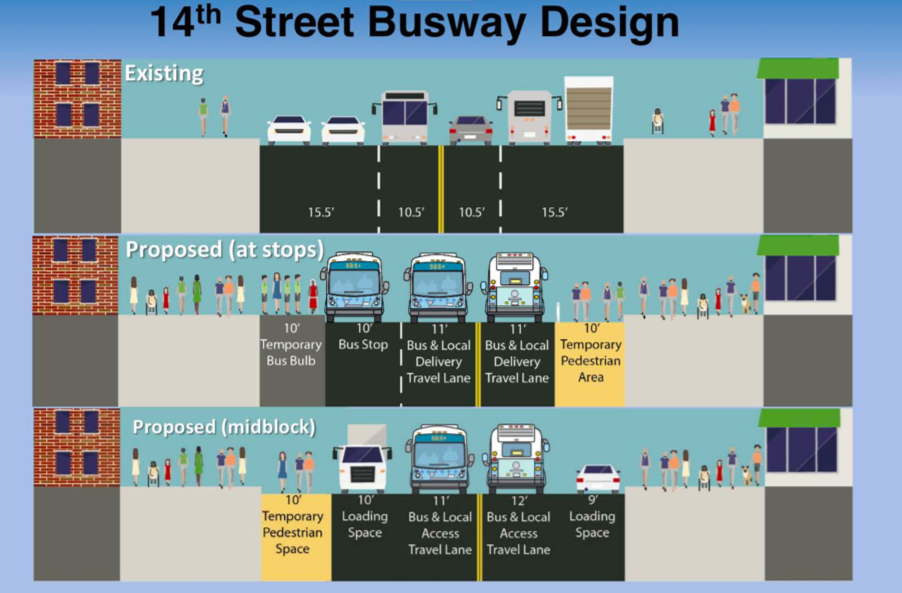The city must follow through with the 14th Street bus lanes — regardless of the MTA's decision to repair the L train without a full shutdown, Transportation Alternatives said.
The transit advocacy group says it would be a mistake if the city reverses course on bus lane improvements now that L service between Manhattan and Brooklyn will only be shuttered on nights and weekends — a mistake that will hurt riders along one of the slowest routes in the city.
“The need for better transit on this corridor is not limited to periods of reduced subway service,” TransAlt interim co-Director Ellen McDermott said last week, after Streetsblog reported that MTA officials no longer see the need for improvements. “New York City is in the midst of an ongoing transportation crisis with chronic gridlock and buses that move at walking speeds. To turn 14th Street’s future over to space-hogging drivers is an attack not only on bus riders, but also on common sense.”
Neighborhood groups such as the 14th Street Coalition have worked to block a dedicated busway even before the L-train shutdown was cancelled. Arthur Schwartz, a lawyer for the coalition, threatened to sue the Department of Transportation last February to force it to further water down its plan, which would only maintain dedicated lanes for buses during some hours and not for the full length of 14th Street. Some landowners represented by Schwartz argued that closing off 14th Street to cars even during those limited hours would send disruptive traffic onto their quiet neighborhood streets.
Schwartz reiterated his position that Select Bus Service is not needed on 14th Street anymore because the L train will continue operate under the crosstown thoroughfare during the week. He claimed that bus service on 14th Street is “very quick and not overcrowded, with no demand from users for more.”
Ridership data however shows that the M14A and M14D are the second and fourth slowest buses in the city. The two buses average 3.9 and 4 miles per hour and combine for the ninth highest ridership in the city, with an average of 28,000 daily weekday riders in 2017, according to MTA data.
L service in the East Village will also be greatly reduced during the partial shutdown, according to the memo obtained by Streetsblog. The Third and First Avenue stations may become exit only, the MTA memo revealed.
The MTA declined to comment on the memo from Streetsblog's bombshell report last week, claiming it reflected only early discussions for how to mitigate traffic and transit during the partial L shutdown. City transportation officials have declined to comment on their plans until the MTA construction project is completely worked out.






